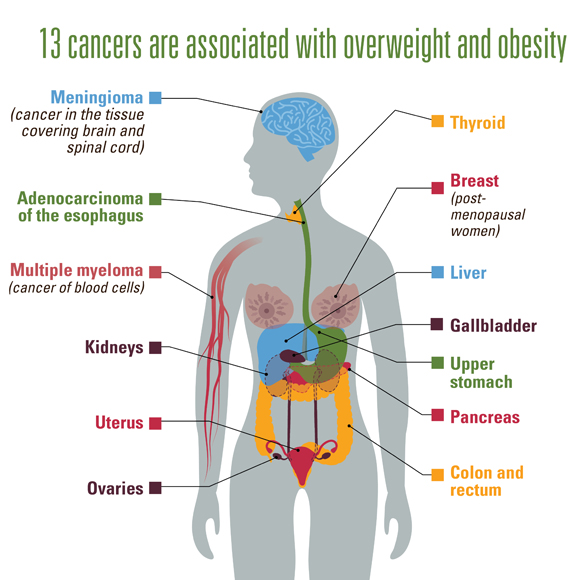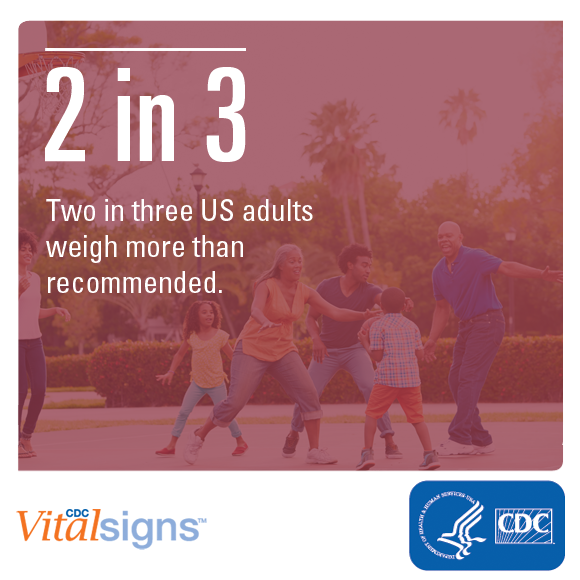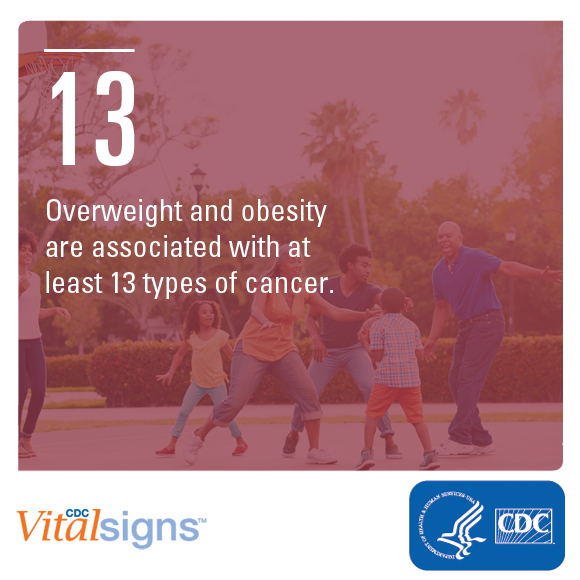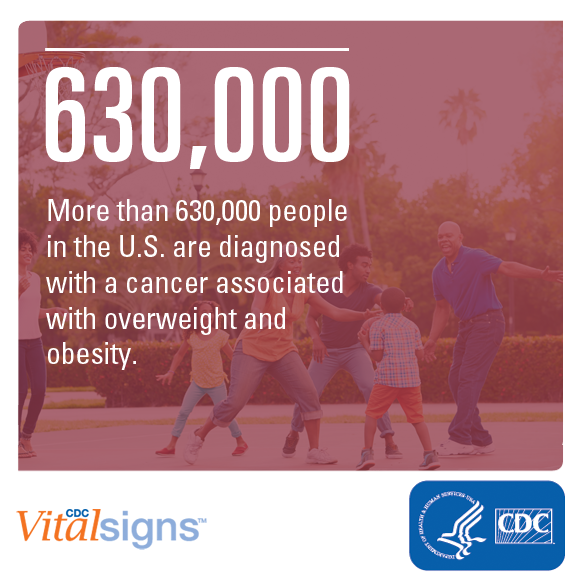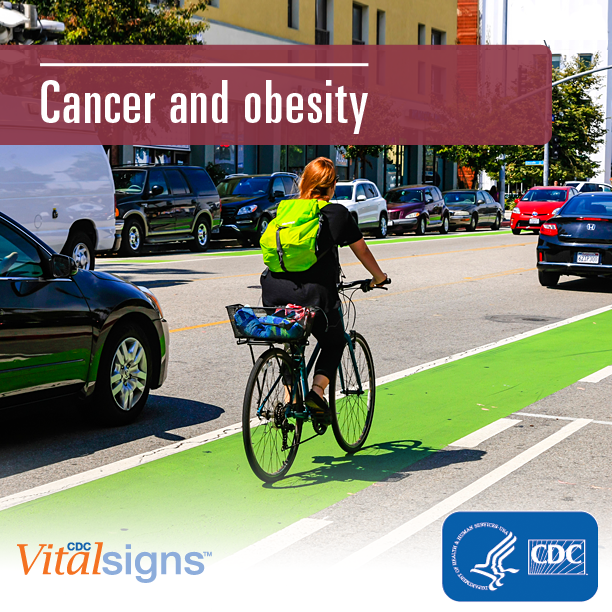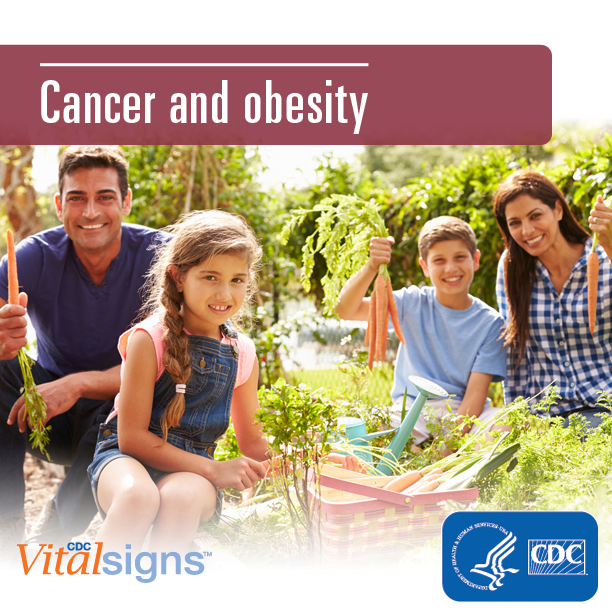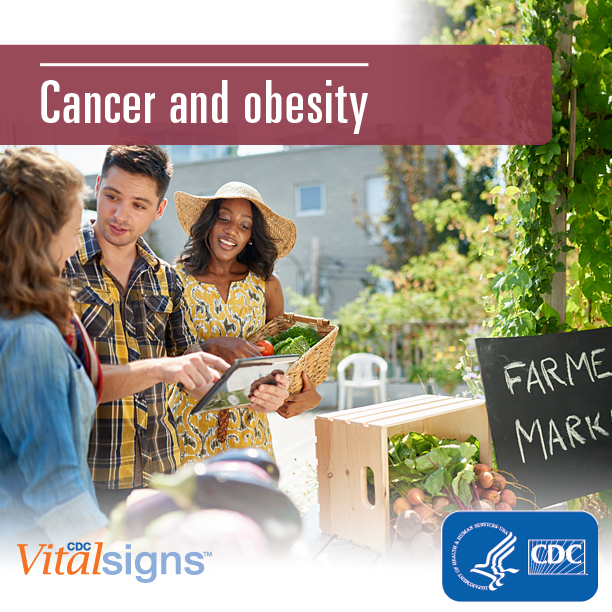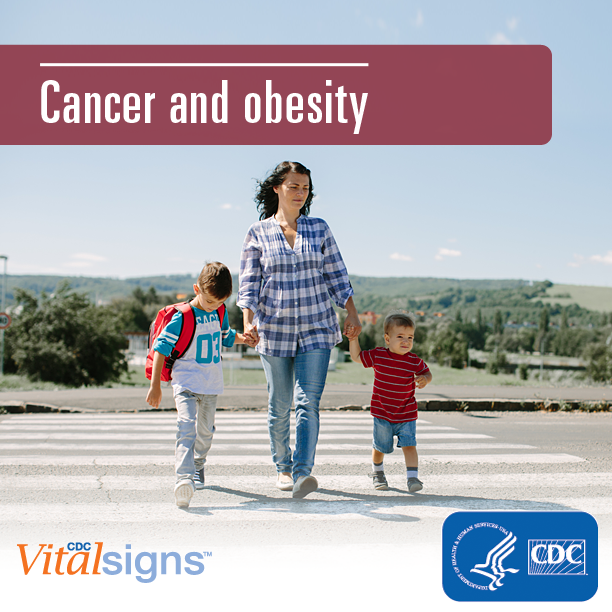Cancer and Obesity
Overweight and obesity are linked to cancer.
More than half of Americans who are overweight or obese can increase their risk for cancer. Many things are associated with cancer, but avoiding tobacco and maintaining a healthy weight are among the most important things people can do to lower their risk of getting cancer. Some states and communities are providing support that can help people get to and keep a healthy weight.
Contact Information
(404) 639-3286
media@cdc.gov
Factsheet:
English [PDF 2.0MB](https://www.cdc.gov/vitalsigns/pdf/2017-10-vitalsigns.pdf)
Spanish [PDF 2.0MB]
Brenda Fitzgerald, MD

“A majority of American adults weigh more than recommended – and being overweight or obese puts people at higher risk for a number of cancers – so these findings are a cause for concern. By getting to and keeping a healthy weight, we all can play a role in cancer prevention”
Brenda Fitzgerald, MD – Director, CDC
Lisa C. Richardson, MD, MPH

“As an oncologist, when people ask me if there’s a cure for cancer, I respond by saying ‘yes, good health is the best prescription for preventing chronic diseases, including cancer’. What that means to healthcare providers like me is helping people to have easier access to healthy, affordable foods and drinks where they live, work, learn, and play.”
Lisa C. Richardson, MD, MPH – Director, CDC’s Division of Cancer Prevention and Control (DCPC)
Related Links
- Press Release: Cancer and Obesity – English | Spanish
- MMWR: Trends in Incidence of Cancers Associated with Overweight and Obesity – United States, 2005-2014
- Vital Signs: Home | October 2017 Vital Signs | Fact Sheet [PDF 2.0MB] | Topics
- Vital Signs: (Spanish) Home | 2017 Octubre – Signos Vitales | Fact Sheet [PDF 2.0MB] | Topics
- Vital Signs – Cancer and Obesity:
Video
- Page last reviewed: October 3, 2017
- Page last updated: October 12, 2017
- Content source:



 ShareCompartir
ShareCompartir




